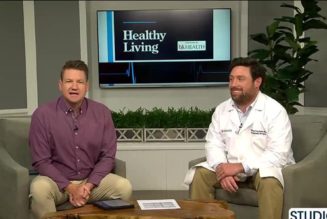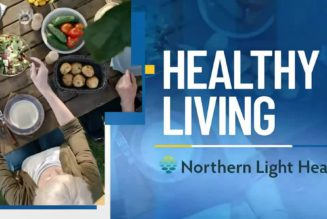We all want to live as much of a long and healthy life as possible, right? Well, good news then gang! As new research suggests that maintaining or taking up eight healthy habits could lengthen your life span by more than two decades – and while earlier is better, it’s also “never too late” to switch up your lifestyle.
The study – presented at the Nutrition 2023 summit by the American Society for Nutrition – found that men who practiced all the positive habits by age 40 would be predicted to live an average of 24 years longer than men with none of them, while women keeping up all eight in middle age was associated with an extra 21 years of life (compared to women who had none of the below lifestyle traits).
“We were really surprised by just how much could be gained with the adoption of one, two, three, or all eight lifestyle factors,” said Dr Xuan-Mai Nguyen, health science specialist at the Department of Veterans Affairs at Carle Illinois College of Medicine.
“Our research findings suggest that adopting a healthy lifestyle is important for both public health and personal wellness. The earlier the better, but even if you only make a small change in your 40s, 50s, or 60s, it still is beneficial.”
The results come from one of the largest studies to date, looking at lifestyle and medical records from 719,147 people who were enrolled in the Veterans Affairs Million Veteran Program between 2011-2019.
So, if you haven’t already, here are the eight lifestyle changes to consider making today, as suggested by scientists:
Get physically active
Whilst this one may not exactly come as a shock, it’s nice to be reminded of the imporant of exercise – low physical activity, opioid use and smoking had the biggest impact on lifespan, increasing the risk of death during the study period by 30-40%.
Generally speaking, it’s advised that adults do at least 150 minutes of moderate intensity activity a week (like brisk walking, riding a bike or dancing) or 75 minutes of vigorous intensity activity a week (like running, swimming, or sports), spread across four to five days.
Avoid opioids
Being free of opioid drug addiction really could prolong your life. See the NHS website for information on where to get help for drugs if you have any further questions or concerns about yourself or a loved one.
Don’t smoke
Every year around 76,000 people in the UK die from smoking, with many more living with debilitating smoking-related illnesses. Get advice on quitting here.
Be mindful of stress
Stress, binge drinking, poor diet and poor sleep hygiene were associated with roughly a 20% increase in the risk of death in the study. If you notice physical or mental symptoms of stress, you can try speaking to someone you trust, doing exercise, or doing mindfulness activities like breathing exercises. If you’re still struggling to cope, speak to a GP for advice.
Take care of your diet
A healthy diet consists of at least five portions of fruit and veg a day, high fibre starchy foods like potatoes, rice, rice or pasta, dairy or dairy alternatives, protein, unsaturated oils and spreads, and drinking plenty of fluids (six-eight glasses a day), as outlined by the Eatwell Guide.
A separate study, also presented at Nutrition 2023, suggested that incorporating olive oil into your diet could help reduce the risk of dying from dementia. Specifically, consuming more than half a tablespoon per day is linked to a 28% lower risk of this, compared to those who never or rarely eat the oil. Plus, replacing just one teaspoon of margarine and mayo with the same amount of olive oil each day is enough to achieve an 8 to 14% lower risk of dying from the disease.
However, Anne-Julie Tessier, a postdoctoral fellow at the Harvard TH Chan School of Public Health in the USA reportedly flagged that the relationship between olive oil and the risk of dying from dementia was independent of the overall diet quality, and as the research is observational, doesn’t prove olive oil is the cause of the reduced risk of threatening dementia, among other things.
“The authors claim replacing margarine and mayonnaise with olive oil could reduce risk; however, many people who did this would also change the food that it is being added to, which could increase vegetable, lentils, beans, peas, seeds and nut intake – all of which are linked to a healthy diet and reduced risk of conditions like dementia,” added Dr Duane Mellor, Registered Dietitian and Senior Lecturer, Aston Medical School, Aston University.
Don’t binge drink
It’s recommended to drink no more than 14 units of alcohol a week, spread across three days or more. So roughly around six medium glasses of wine, or six pints of 4% beer.
Sleep well
It’s thought adults need around seven to nine hours of sleep per night, though this can differ depending on the person, and sometimes sleep quality is more important than quantity.
Cultivate positive social relationships
A lack of positive social relationships was associated with a 5% increased risk of death in the study, so whilst it’s not the most important one, having good people around you is always going to be nourishing for the soul.
Researchers say these findings highlight the role of lifestyle factors in contributing to chronic diseases like Type 2 diabetes and heart disease and could help to determine the extent to which healthy habits can actually help people reduce their risk of illness and live longer.
“It’s never too late to adopt a healthy lifestyle,” said Dr Nguyen.
Both mentioned studies have not yet been peer reviewed.
This article is not intended to be a substitute for professional medical advice or diagnosis. Always seek the advice of your physician or other qualified health provider with any questions you may have regarding a medical condition.











